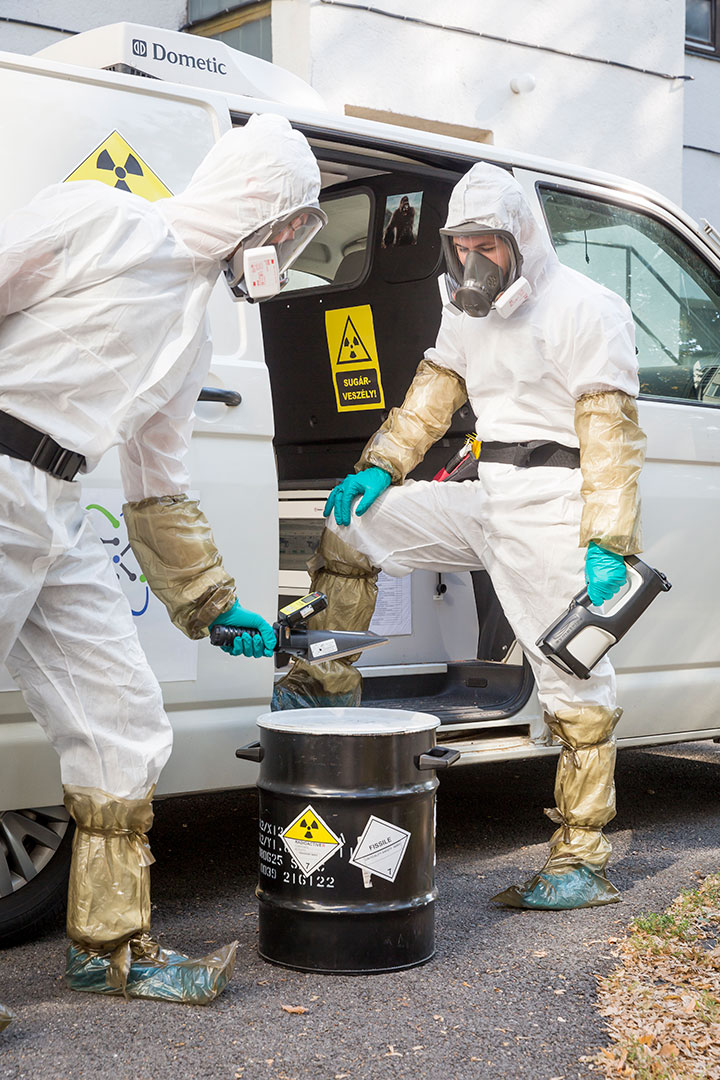EK-CER is a Collaborating Centre of the IAEA in Nuclear Forensics

Centre for Energy Research (EK) in Budapest, Hungary was designated as the first Collaborating Centre in Nuclear Forensics of the IAEA in 2016 which was prolonged this year till 2025. The Centre provides laboratory, research and training capacity, expertise, and mentoring opportunities together with scientific collaborations in the field of nuclear security. The Centre has a long-standing expertise in non-destructive (e.g. gamma-ray spectroscopy,) and destructive (e.g. inductively coupled plasma mass spectrometry) analysis of radioactive and nuclear materials, as key techniques for nuclear forensics investigations. Further instrumentation is also helping nuclear forensics examination like scanning electron microscope, neutron coincidence counting, alpha spectrometry, X-Ray diffraction, or neutron and X-ray tomography.
One of the main tasks of the Centre is to operate the National Nuclear Forensics Laboratory for real nuclear forensics examination (categorization and characterization of confiscated nuclear materials at the scene and in the laboratory) using the analytical techniques available at EK and partner organizations for request of the Hungarian Police. Besides, in the platform of the IAEA Collaborating Centre for Nuclear Forensics further tasks are (1) designing and implementation of IAEA training courses and residential assignment programs for nuclear forensics, (2) hosting of technical exchange visits to help Member States and establish bi-lateral cooperation agreements in nuclear forensics, (3) participation at inter-laboratory exercises for nuclear forensics, (4) hosting and organizing of relevant international events, (5) participating at IAEA Coordinated Research Projects (CRP), (6) research on nuclear forensics like determination of origin of sealed radioactive sources and development of operating procedure for radiological crime scene management in Hungary, (7) development of instruments for neutron detection and for training activities (e.g. virtual neutron and gamma sources), (8) organization of national trainings, educational programs and table-top exercises in Hungary, (9) helping authorities to respond different type of nuclear security events, like radiological crime scene investigation, as well as training of the national first responders, (10) establishing and strengthening of national, international and regional cooperation in nuclear forensics.
Akos Horváth
EK-CER
akos.horvath@ek-cer.hu